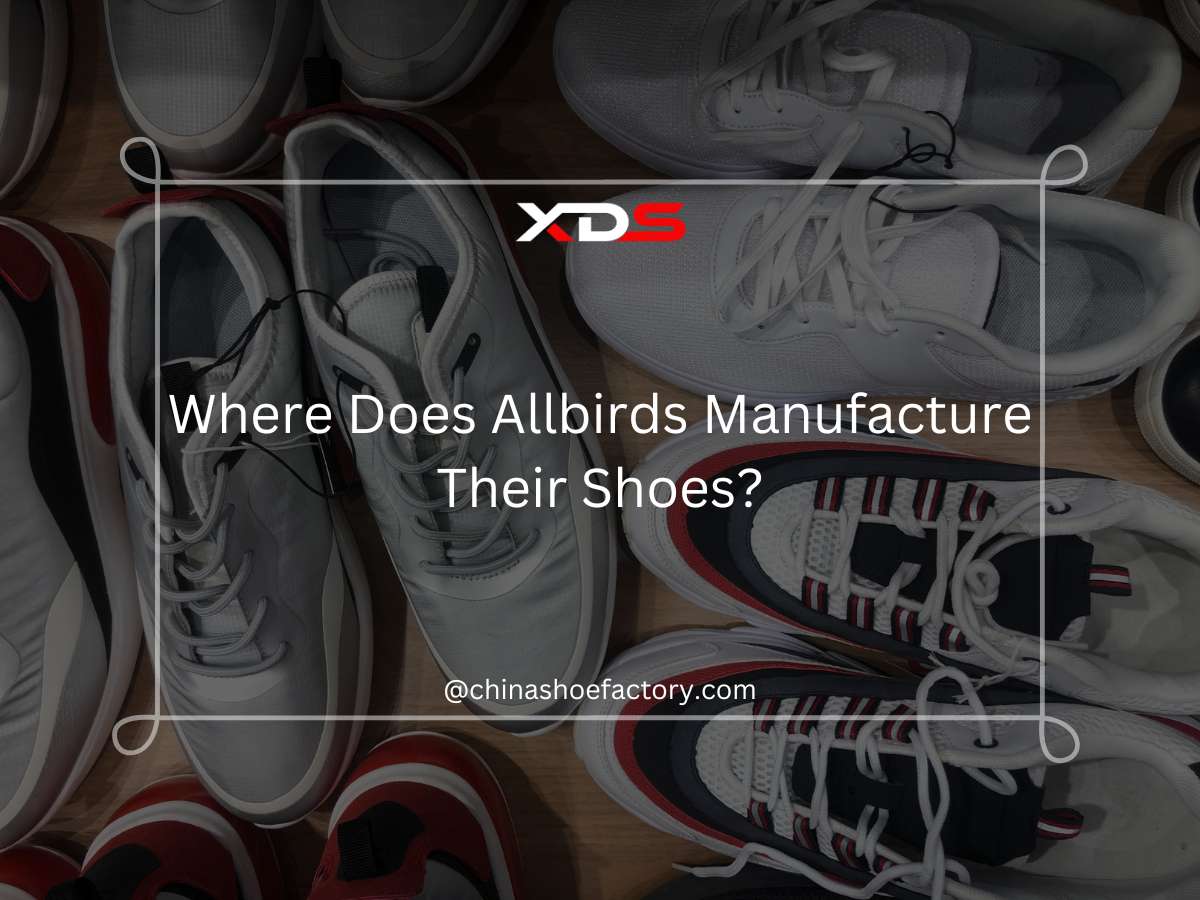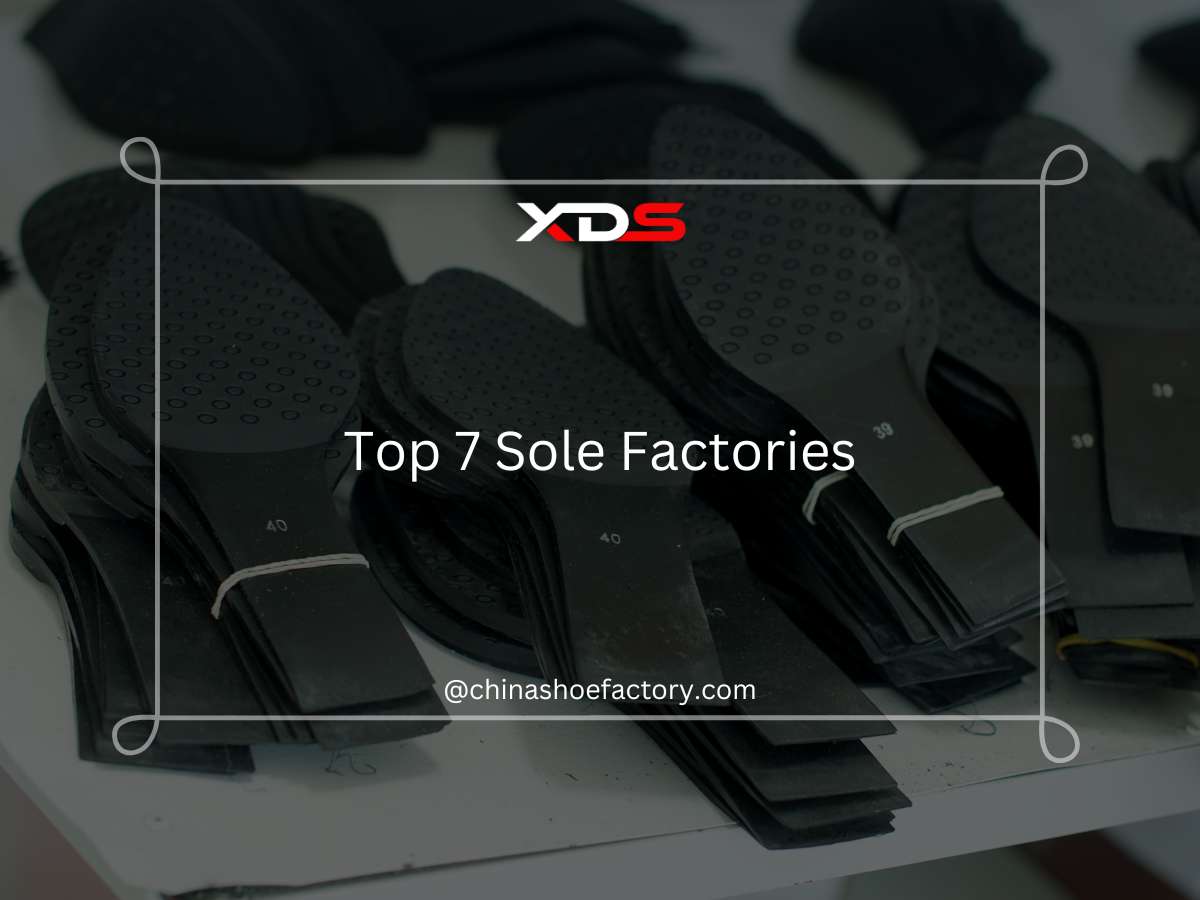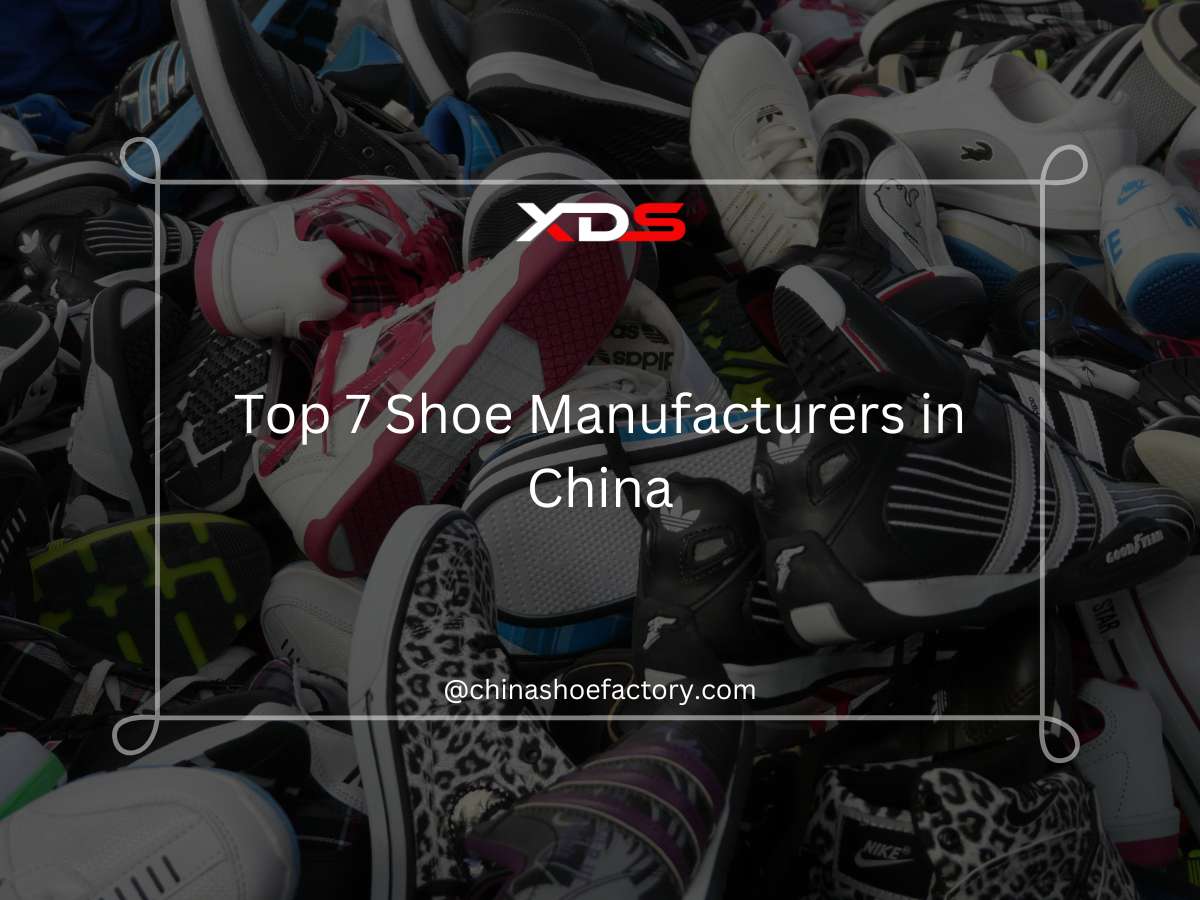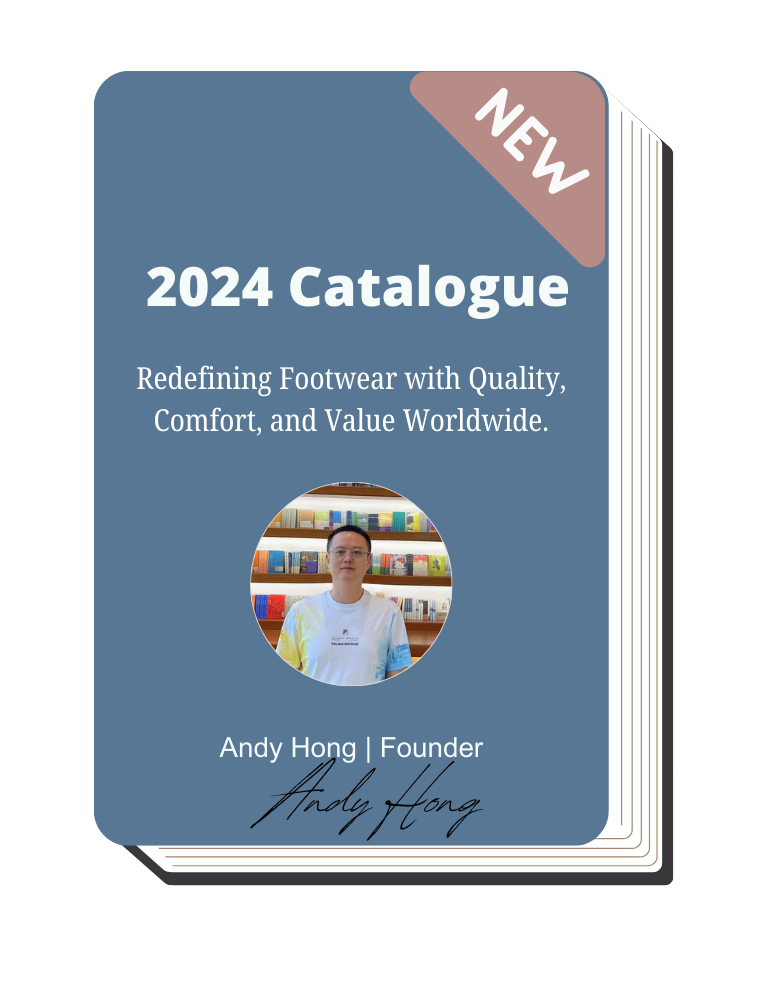How to Import Shoes From China?

Author: Andy Hong | Founder at XDS
Hi, I'm Andy Hong, here to share my expertise in footwear manufacturing with you.
How to Import Shoes From China?
Table of Contents
Ever wonder how big brands source their shoes at lower costs? Importing shoes from China can be a game-changer for your business.
As a shoe merchandiser, I understand the challenges and the benefits involved. I’ve helped businesses streamline their process and grow their profits by sourcing shoes directly from Chinese manufacturers.
Importing shoes from China involves finding reliable manufacturers, managing customs, and handling quality checks to bring products to your market.
In this guide, you’ll learn the steps to identify trustworthy suppliers. You’ll also get tips on avoiding common mistakes that could delay your shipments.
Keep reading to learn more!
1. Quick Process Chart
Importing shoes from China involves several important steps that help you avoid delays and get the right products for your business. Breaking down each stage makes the process easier to manage and reduces potential risks. Here is a brief breakdown to guide you through the process.
| Step | Name of the Step | Overview |
| 1 | Research the Market and Define Your Needs | Understand what shoes to import by studying trends and setting clear goals. This helps you choose products that match your market. |
| 2 | Finding Reliable Suppliers | Look for trustworthy manufacturers through online platforms and referrals. Request samples and review their experience to avoid risks. |
| 3 | Negotiate and Finalize Agreements | Secure better pricing and terms by discussing order sizes and timelines. Put everything in writing to avoid misunderstandings. |
| 4 | Understand Shipping and Logistics | Choose between air or sea freight and work with freight forwarders. Track shipments and calculate costs to stay on budget. |
| 5 | Customs Clearance and Documentation | Prepare documents like invoices and classify goods correctly. Consider hiring a customs broker to speed up the process. |
| 6 | Receiving and Inspecting Goods | Check shipments for damage, count inventory, and inspect quality. Store products properly to keep them in good condition. |
Step#1 Research the Market and Define Your Needs
Before diving into imports, it’s important to know exactly what kind of shoes your customers are looking for. Having a clear understanding of trends will help you make better decisions when sourcing. Here are the steps to researching the market and defining your needs:
- Analyze Market Trends: Look at what types of shoes are popular – from athletic footwear to casual styles. Study retail reports, fashion forecasts, and competitor offerings to identify gaps in the market.
- Identify Target Audience: Think about who will buy your shoes. Are they looking for affordable everyday wear or premium designs? Understanding your audience allows you to focus on suppliers that specialize in the right type of products.
- Set a Budget: Decide how much you can spend on inventory and what price points fit your market. This helps narrow down suppliers that match your budget while keeping room for profit.

Step#2 Finding Reliable Suppliers
Once you know what shoes you want to import, the next step is finding suppliers that can meet your needs. Working with the right manufacturers can make a big difference in product quality and delivery times. Here’s how to connect with trustworthy suppliers:
- Use Online Marketplaces and Directories: Finding reliable manufacturers is crucial when importing shoes from China. Below are the top directories and websites to help you get started:
- Alibaba: A platform with a wide range of manufacturers offering various shoe styles and options.
- Made-in-China: Focused on connecting buyers with verified suppliers across industries, including footwear.
- Global Sources: Offers a curated list of suppliers, making it easier to find reliable manufacturers.
- Request Samples and Review Quality: Before placing large orders, ask for samples of the shoes you plan to import. Check the materials, stitching, and overall build.
- Check Supplier Certifications and Factory Audits: Look for manufacturers with certifications that show they meet quality standards. You can also request third-party audits to confirm their factories operate at the level you expect. This adds confidence that the supplier can handle your order.
- Ask for References: Reach out to previous customers if possible. Ask about their experience with the supplier, including product quality and delivery times. Feedback from other retailers helps you avoid unreliable manufacturers.
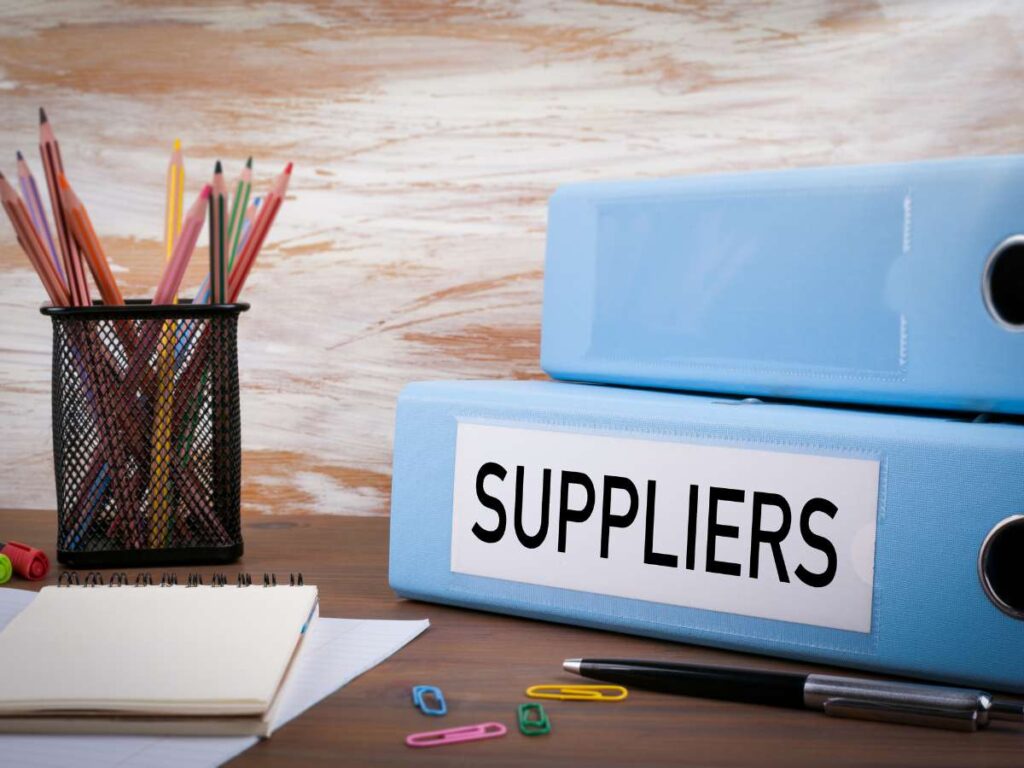
Step#3 Negotiate and Finalize Agreements
After choosing a supplier, the next step is to lock in the details. Good negotiation helps you get better pricing and terms while building a long-term partnership. Here are ways to secure agreements that work for both sides:
- Discuss Pricing and MOQ: Ask about bulk pricing and the smallest order they accept. At XDS, we offer flexible MOQs, making it easier for businesses of all sizes to place orders without overcommitting. Negotiating on volume can lower costs, but make sure the minimum fits your budget.
- Clarify Production Timelines: Set clear expectations for how long it will take to manufacture and ship your shoes. Knowing the timeline upfront helps you plan for seasonal trends and restocking needs. This prevents surprises down the line.
- Agree on Payment Terms: Talk about how and when payments will be made. Some suppliers offer payment in stages – part upfront and the rest upon completion. Finding a balance protects both sides and keeps production moving smoothly.
- Ask for Contract: Once you finalize the terms, make sure everything is written in a contract. At XDS, we craft agreements that are detailed, covering delivery dates, and quality expectations. A well-drafted contract reduces misunderstandings and helps resolve any issues efficiently.

Step#4 Understand Shipping and Logistics
Once your shoes are ready, the next step is getting them from the factory to your location. Managing shipping properly helps avoid delays and keeps your costs under control. Here’s how to handle logistics smoothly:
- Choose the Right Shipping Method: Decide between air freight, sea freight, or express shipping based on your timeline and budget. Air freight is faster but more expensive, while sea freight is cheaper but takes longer. Picking the right option depends on how quickly you need the products.
- Work with Freight Forwarders: Freight forwarders handle shipping arrangements and paperwork. They help find the best routes and rates, making the process easier for you.
- Track Shipments Regularly: Stay updated on where your shipment is during transit. Most freight companies provide tracking options that let you monitor progress. Keeping an eye on shipments helps you plan for arrival.
- Calculate Total Shipping Costs: Factor in freight charges, insurance, and port fees when calculating your shipping costs. Knowing the full expense upfront helps you set product prices correctly. This keeps your profit margins healthy.
Step#5 Customs Clearance and Documentation
Before your shoes arrive, they need to go through customs. Proper documentation helps avoid delays at the border and prevents extra fees. Here’s how to manage customs smoothly:
- Gather Necessary Documents: Prepare invoices, packing lists, and certificates of origin. For example, if you’re importing athletic shoes, you’ll need a detailed invoice listing the number of pairs, sizes, and styles, along with a certificate of origin confirming they were made in China.
- Classify Goods Correctly: Use the correct HS (Harmonized System) code for shoes. This code tells customs what type of product you’re importing. Accurate classification helps avoid overpaying duties or having your shipment held.
- Calculate Import Duties and Taxes: Check the duty rates for shoes in your country. Knowing how much tax to pay upfront prevents surprises. Budgeting for duties keeps your costs under control.
- Hire a Customs Broker: A customs broker handles the clearance process for you. They know local regulations and can resolve issues faster. Working with a broker makes customs easier to manage, especially for large shipments.
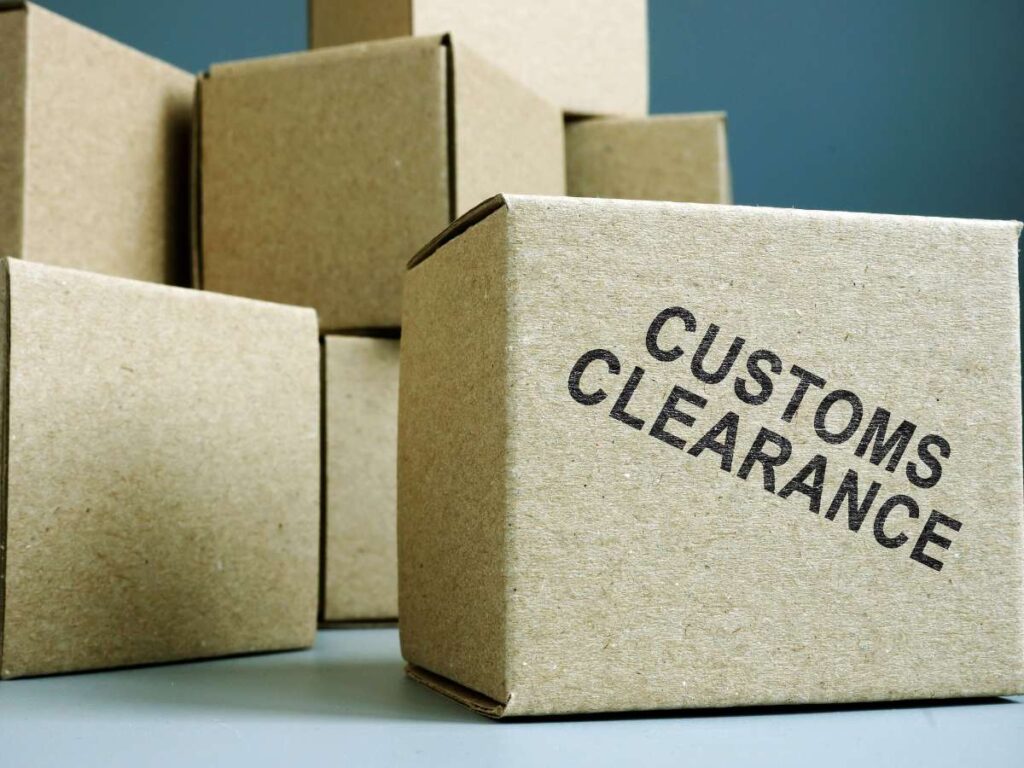
Step#6 Receiving and Inspecting Goods
After customs, your shipment is ready to be received. Inspecting the goods right away helps catch any defects or issues before selling them. Here’s how to handle this final step:
- Check Shipment for Damage: Inspect boxes and pallets as soon as they arrive. Look for signs of damage during transit. Catching issues early helps you file claims with shipping companies if needed.
- Count and Verify Inventory: Make sure the number of shoes matches the order. Compare the shipment with your purchase order and packing list. This confirms you received everything you paid for.
- Inspect Product Quality: Open random boxes to check the shoes. For instance, you can look for defects in stitching, materials, or sizes. Spot-checking helps avoid selling products that don’t meet your standards.
- Store Products Properly: Once inspected, organize the shoes in your storage area. Keep them in a clean, dry space to protect the materials. Proper storage keeps your products in good condition until they’re ready to sell.
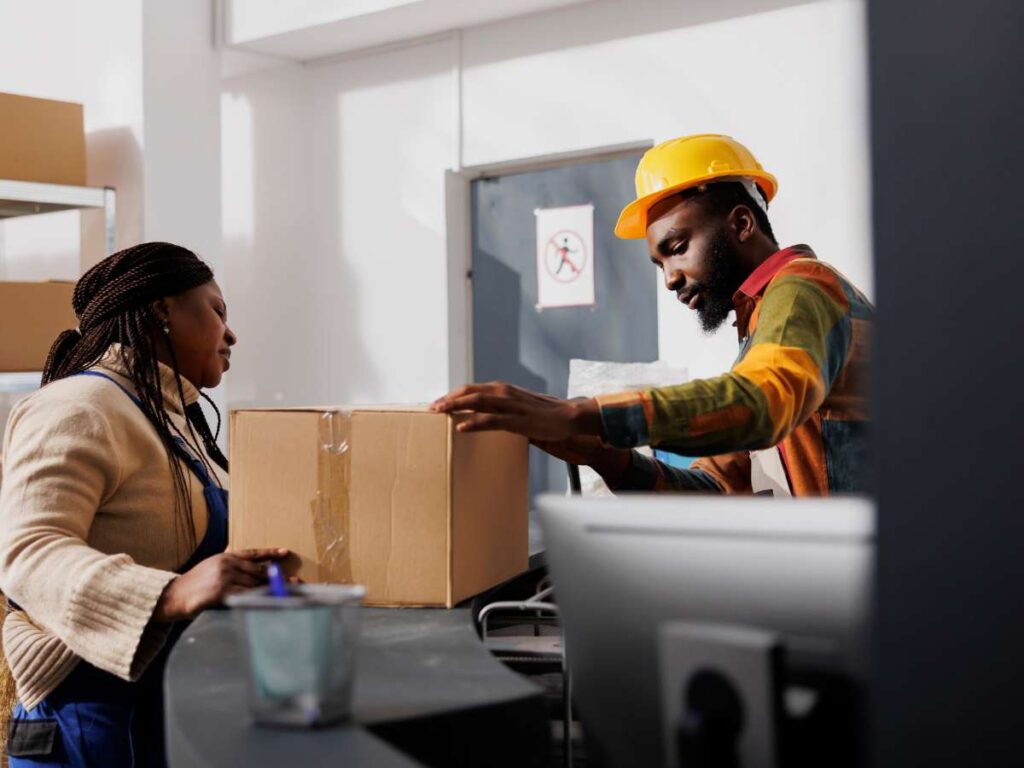
Conclusion
Importing shoes from China can open new opportunities for your business, but it’s important to follow the right steps. From researching the market to receiving your shipment, each part of the process plays a role in helping you avoid mistakes and get quality products.
We hope this guide makes it easier to start importing shoes successfully. If you’re looking for a reliable manufacturer without high order limits, consider XDS. We offer flexible MOQs and frequent quality inspections to help you get the products you need without stress. Contact us today to learn more about how we can support your business!
Recommended Reads for You
We’ve gathered a few more articles that could help you out. Check them out for more great advice:
Manufacturing & Suppliers
Still haven’t found what you’re looking for? Don’t hesitate to contact us; we’re available around the clock to assist you.
Quick Quote
Fill out the form, get the quote in hours!
